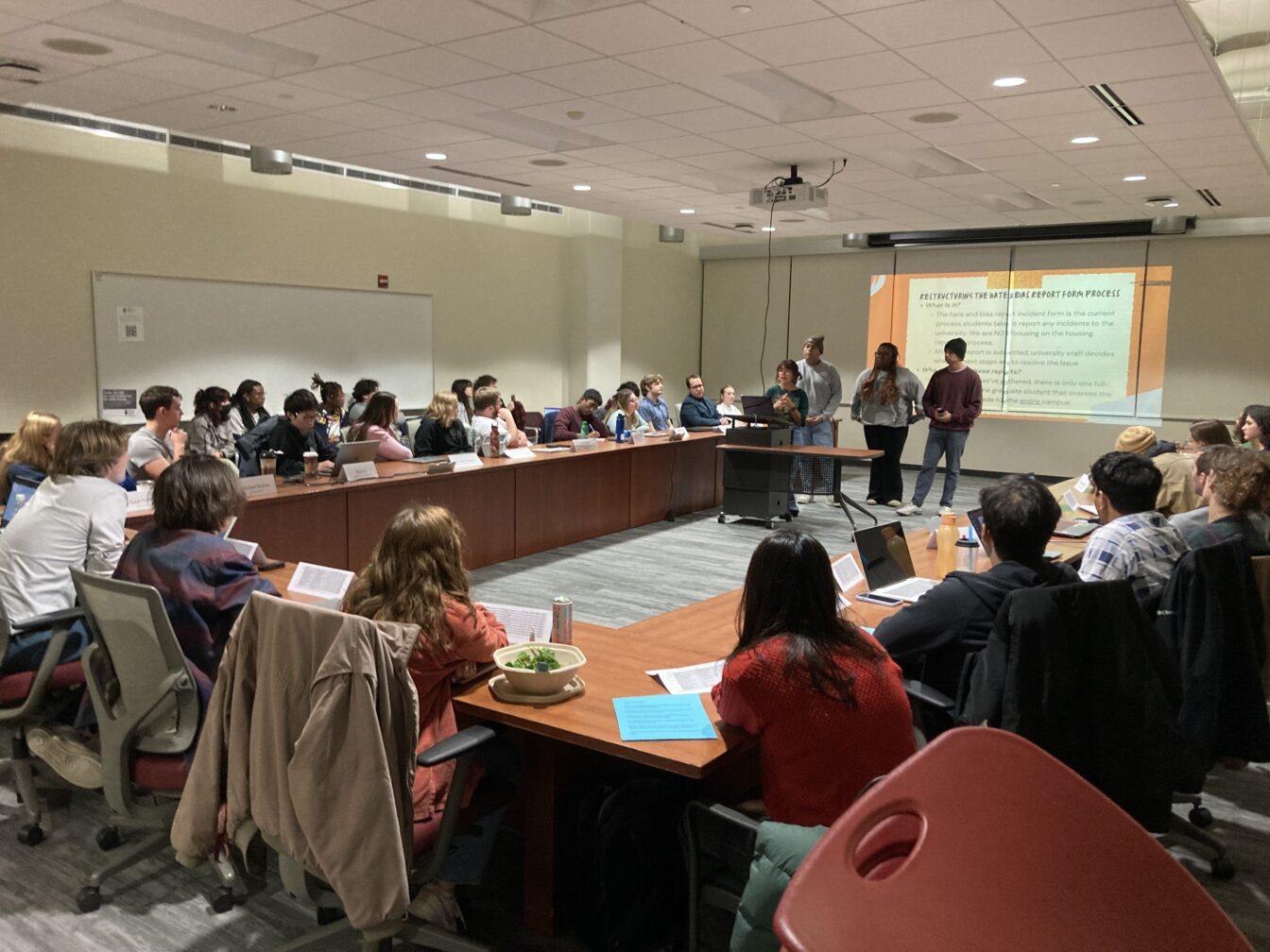Wednesday night, twelve student representatives from the University of Wisconsin-Madison Leaders Igniting Transformation chapter gathered at an Associated Students of Madison Student Council meeting in a decry of the university’s history of responding to on-campus hate & bias incidents that they view as inadequate.
All twelve representatives spoke during an open forum on their grievances with the university to provide an environment that accommodates students of color in a manner that makes them feel safe and protected.
Speakers proposed legislation to the council, calling for a restructuring of the institution’s current Hate and Bias Reporting Process.
Campus Planning Committee ranks UW-Madison’s 2025-27 budget priorities
Of the speakers, president of the UW-Madison LIT chapter Xochitl Quiñones, who also spoke at a Spring 2023 ASM meeting when a racist video of a UW-Madison student began circulating social media platforms, took to the podium to voice her continued disappointment with the actions being taken and to advocate for the legislation’s passing.
“I’ve been here [UW-Madison] for two-and-a-half years and in that time, this forum has failed me, and about a third of the student body on campus,” Quiñones said. “I’ve been the victim of several racist, xenophobic, sexist and homophobic comments at the hands of classmates alone and staff with no real way to hold these people accountable.”
During her speech, Quiñones quoted a poem that warned of the dangers of complicity during World War II in efforts to draw parallels between the poem’s message and the current reporting process, and to emphasize the urgency of her and her colleagues’ cause.
“He stated that after he silently watched and enabled disenfranchised groups to lose their freedoms, when the oppressors came for him, there was no one left to speak out for him,” Quiñones said. “This adjustment in the system benefits everyone in this room, and it’s selfish to act like it doesn’t. Students and citizens across Madison, across the state, and across the country are watching. I urge all of you support this legislation to help restructure the hate and bias incident report process before it’s too late.”
After the open forum, the council heard a presentation from LIT detailing the contents of the legislation and how it would ameliorate both the current system for reporting incidents of hate and bias, and the general experience of students of color and marginalized student groups on campus.
‘Reservation Dogs’ actor, climate activist speaks on value of comedy during Native November keynote
The restructuring of the reporting process is inspired by the ate and bias reporting process currently used at UW-Eau Claire, LIT Vice President Josiah Gomez said.
According to Gomez and his fellow presenters, students of color in Eau Claire feel significantly more accepted and safe on campus than their Madison counterparts.
Gomez said this is because the system set up there allows for deeper, more meaningful conversations between students affected by hate or bias and the UW-Eau Claire administration and staff — conversations he said are not happening in Madison.
The legislation would demand incident reports made in the past ten years be made publicly available on the university website. The legislation also requires a minimum of two full-time students be brought on to the campus hate and bias response team, holding equal voting power to fellow members.
The campus hate and bias response team would additionally be obligated to respond to each report within 48 hours through a personalized letter with resources, a response timeline on the action plan and a point of contact, per the legislation.
The council unanimously approved the legislation, which will be sent to Chancellor Jennifer Mnookin’s office for further review.
The ASM Student Council will meet again Jan. 24 to vote on more proposed legislation, including the Hate Speech Isn’t Free initiative.













